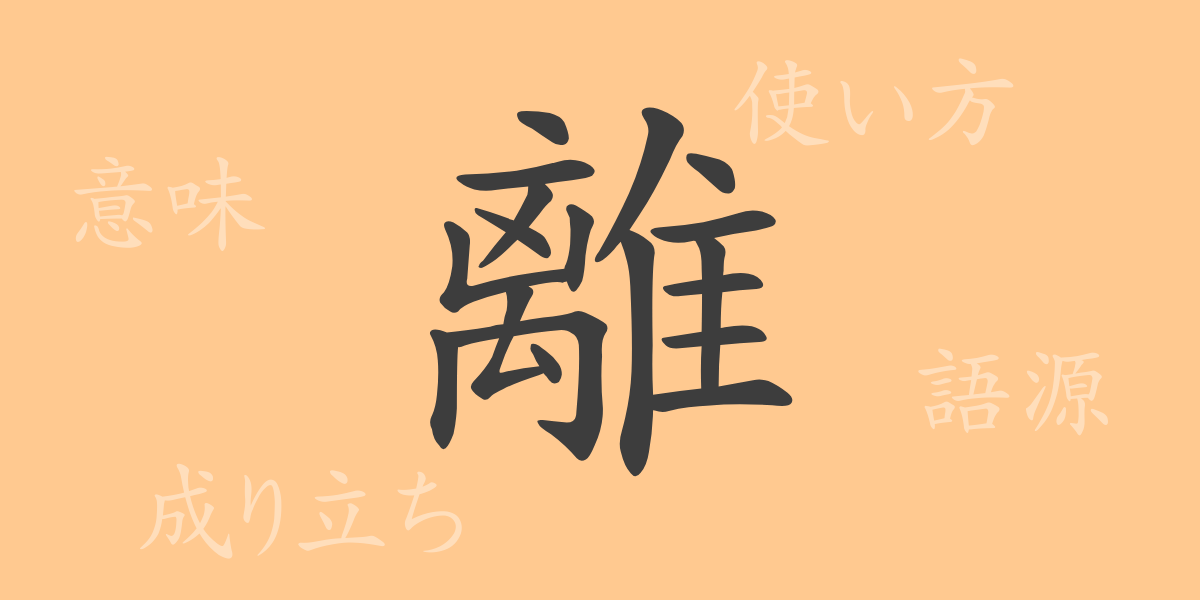Japanese character culture is profound, and among them, kanji (漢字) is particularly complex and fascinating. This time, we focus on one of Japan’s commonly used kanji, “離” (ri), exploring its meaning, origin, and usage. Let’s uncover the emotions embedded in this single character and the significance of “離” (ri) in our daily lives.
Origin of 離 (ri)
The kanji “離” (ri) is a character that originated from ancient China. Its form combines the character for fire “火” (hi) with a separated form “离” (li). As can be inferred from this form, “離” (ri) originally meant “to separate” or “to part,” symbolizing the separation of fire. Over time, this kanji has come to encompass various meanings, but its core concept remains alive in our language.
Meaning and Usage of 離 (ri)
The kanji “離” (ri) has basic meanings such as “to separate,” “to leave,” and “to part.” These meanings are used not only to indicate physical distance but also to express psychological distance or the severance of relationships. Additionally, it is used in legal terms like “離婚” (rikon), meaning divorce. This kanji is highly valued for expressing changes in human relationships or the state of things, and it is used in a wide range of contexts in Japanese.
Readings, Stroke Count, and Radical of 離 (ri)
The kanji “離” (ri) has multiple readings in Japanese.
- Readings: On’yomi (音読み) as “リ” (ri), Kun’yomi (訓読み) as “はなれる” (hanareru), “へだたる” (hedataru)
- Stroke count: 19 strokes in total
- Radical: 隹 (furutori)
Idioms, Proverbs, and Expressions Using 離 (ri)
There are numerous idioms, proverbs, and expressions that include “離” (ri), showcasing the richness of Japanese expression. For example, “離婚” (rikon) refers to a legal separation of a married couple, “愛別離苦” (aibetsuriku) is a Buddhist term meaning the pain of parting from loved ones, and “破産離” (hasanri) indicates losing social credit due to bankruptcy. These expressions vividly reflect the impact of “離” (ri) on human emotions and social life.
Summary of 離 (ri)
As its form suggests, the kanji “離” (ri) signifies separation or severance, enabling diverse expressions in our language. The emotional weight carried by this single character is significant in human relationships and social life. Through this exploration, we have understood the depth of meaning and the broad usage of “離” (ri) in Japanese. Moving forward, when encountering words or expressions containing “離” (ri), we should cherish the underlying emotions and culture they represent.

























